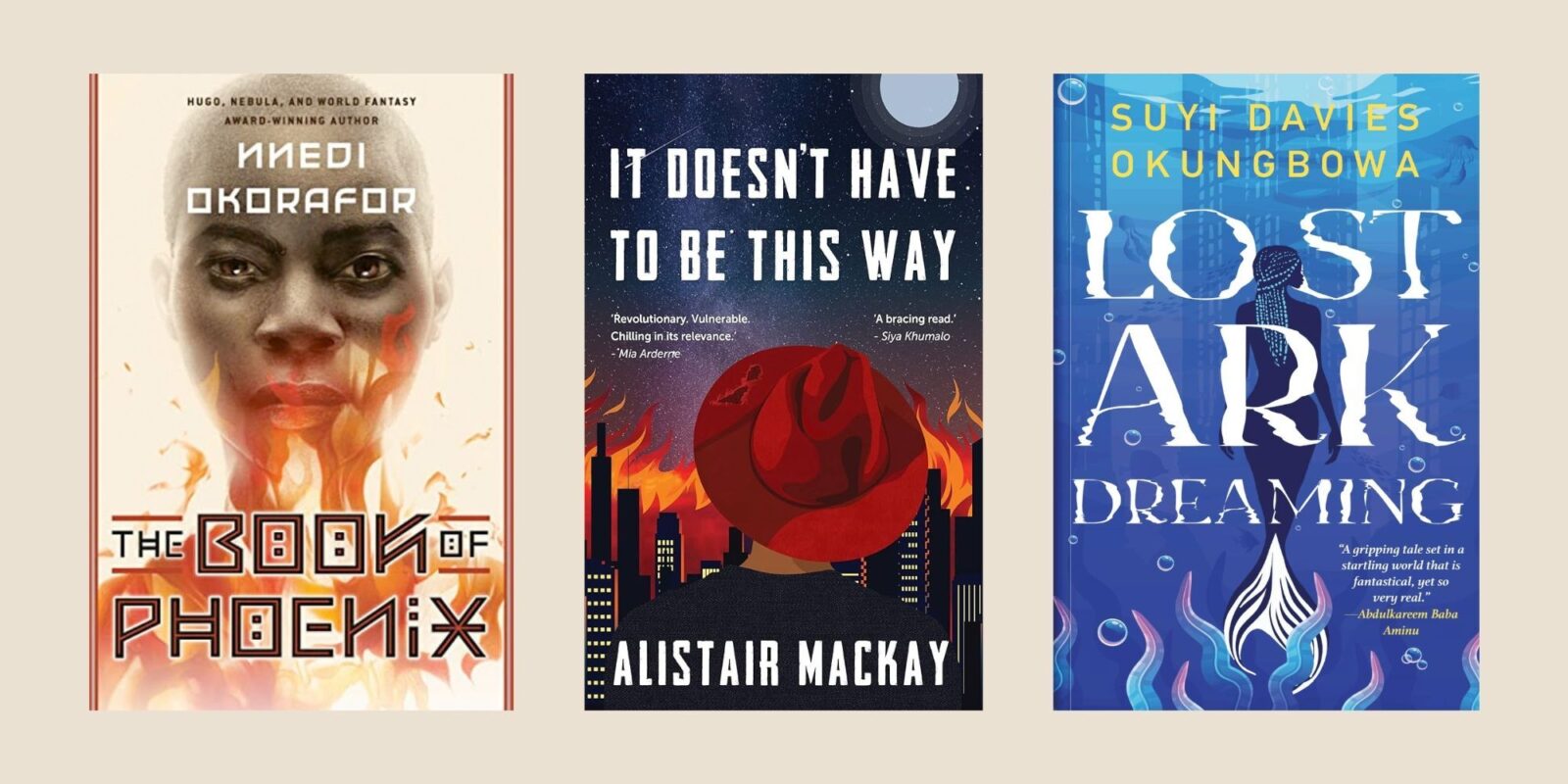Reimagining the Future – 3 Books of Black Imagination and Renewal
This October, in honour of Black History Month, we explore how the Black imagination, through Afrofuturism and African Futurism, sheds a different light on our current research cycle, The Rift.

The environmental and climate issues that we are experiencing today are deeply intertwined with racial and social justice. Black communities across the diaspora have highlighted the interdependencies between climate and social justice in their political and social activism, scientific research and innovation, as well as artistic and cultural expression.
This is not just about analysis of the past – Black History has always been underscored by narratives of hope for a better and more sustainable equitable future. Historical experiences of disenfranchisement have required enquiry into and planning for preferred futures of freedom and equality that can be applied to the strategic thinking and planning around the climate crisis.
Afrofuturism and African Futurism are key examples of this. Both are creative and intellectual traditions that imagine Black (diaspora) futures through speculative narratives to charter new paths for a sustainable future. These intellectual movements have reinforced the importance of traditional (ecological) knowledge and ways of being, while also being curious about new ideas and innovative technology. Critical to their efforts is the importance of human connection. These traditions, while not specific to the climate movement, have novel contributions to make to how possible climate futures are deliberated particularly for their optimistic and hopeful lens.
In this spirit, we are celebrating 3 books by Black and/or African authors who, through their writing, are creating, designing and imaging transformative climate and societal futures.
The Book of Phoenix by Nnedi Okorafor
This is a unique story of magical futurism that follows Phoenix who is a genetic experiment of New York’s Tower 7. In a quest of self-discovery following a traumatic event, Phoenix travels between West Africa and the United States to learn about her stolen past and make sense of her present dystopian reality. The speculative nature of this story explores innovative technology overlayed with cultural nuances from different African countries.
By centring African experiences, the author challenges mainstream power structures and proposes a return to ecological consciousness, key themes that regularly arise in the Accelerator’s own research into how societies are responding to a new climate reality. By decentring Western approaches and reviving ancestral ways of being and community-based solutions, the author offers a social and political critique of our current system – whilst providing concrete ideas about how to put historic ways of being at the heart of future innovation and adaptation.
It Doesn’t Have to be this Way by Alistair Mackay
Set in Cape Town, South Africa, this novel documents a community’s experience with impending climate disaster and social inequality. Three queer protagonists grapple with the challenge of climate degradation and the worrying uncertainty of their collective future. The novel explores how to respond to many of the climate shocks we are facing globally and prompts the reader to think about what systems are in decline and which are emerging.
Throughout the novel, intrusive technology and techno-solutionism deflects and distracts from the urgency of deep adaptation efforts needed to confront the scale of crisis in this story. Our research at the Accelerator finds several present-day examples that parallel the experiences of the protagonists – most obviously in the continued over-reliance on carbon removal technologies. Mackay’s book also provides alternative models, where renewed connections between people, place, and nature are pathways to a more resilient and regenerative future. Again, these Afrofuturist visions are echoed in emerging projects uncovered in our current research into regenerative design and renewal – from the Reserva Penitas design project in Mexico to a Lo-Fab conservative agriculture institute in Rwanda.
Lost Ark Dreaming by Suyi Davis Okungbowa
This eco-science fiction novella takes place in a future version of Nigeria where the effects of climate change have caused dramatic sea-level rise. Following a post-environmental apocalyptic event, this story describes a socially and politically fractured society where what is left of humanity is confined to exist in five high-rise towers that are partially submerged by the Atlantic Ocean. Okungbowa employs Yoruba spirituality and tradition to tell a story about how misinformation and propaganda can corrupt traditional knowledge and collective memory. The protagonists, Yekini, Tuoyo and Ngozi, despite their class difference, are brought together to confront a troubling conspiracy.
The work echoes many of our current research themes – with the drivers and cascading impacts of declining stability, coherence, and complexity of social systems, a key feature of our own research into Collapse. It wouldn’t be fair to reveal too much about this story’s twists and turns – but again, the novella offers a resolution that is instructive – with the protagonists reconfiguring structures of power and forging new forms of communication that allow a new path to emerge.
These pieces are just some of the many works of climate fiction that showcase the creative and imaginative storytelling that Black and African authors have to share. In their own ways, these stories challenge the reader to rethink relationships to our natural environments, culture, and identity. By postulating through the lens of Black optimism and possibility, these authors’ contributions invite readers to think critically about resilient pathways to freedom and sustainability. The African Futurist and Afrofuturist traditions effectively offer archetypes that fashion worlds of healing, liberation, and invention that we all can learn from.
